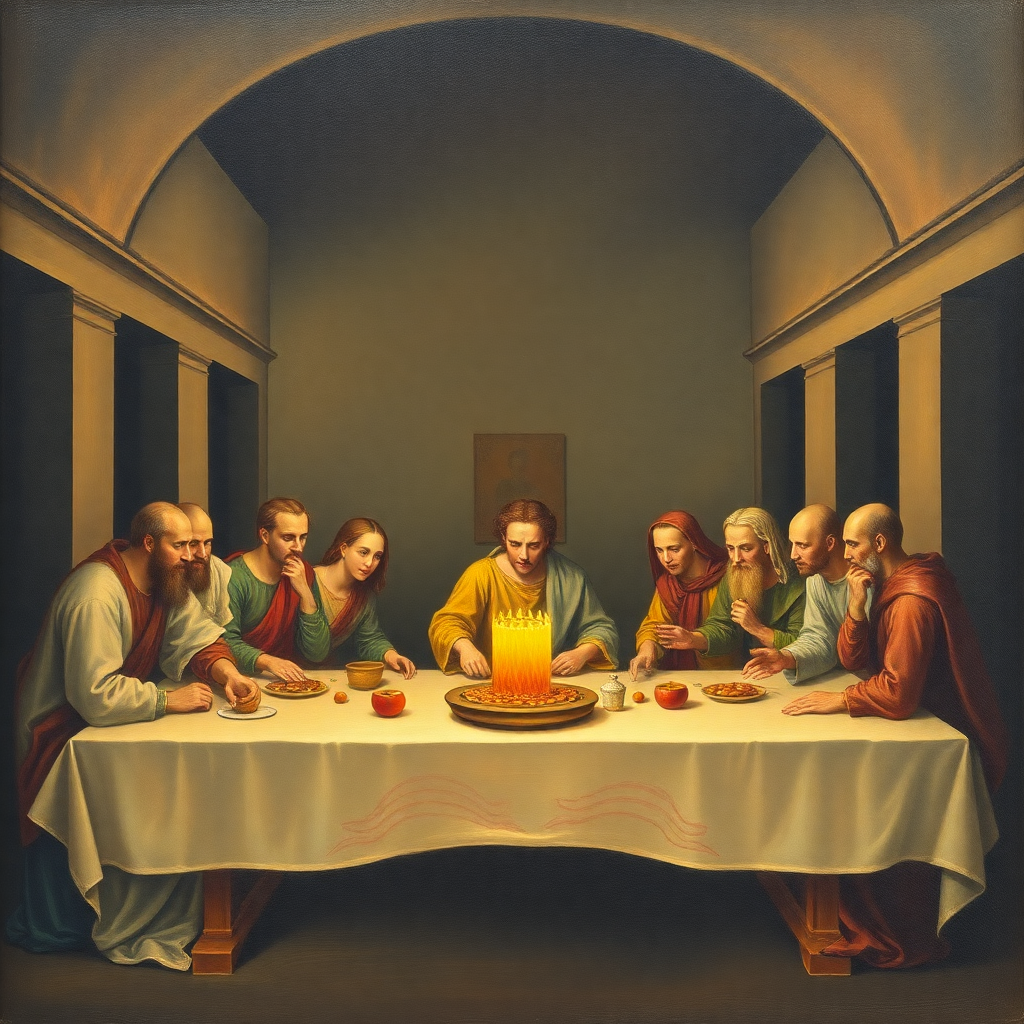What is the meaning of The Last Supper?
During the Last Supper, Jesus initiated the ritual of the Eucharist, sharing bread and wine with his disciples as symbols of his body and blood. This act of sharing the bread and wine symbolized the impending sacrifice of Jesus' body and the shedding of his blood for the redemption of humanity.
The Last Supper holds profound significance in Christianity, symbolizing the ultimate act of sacrifice, love, and spiritual communion. This pivotal event, chronicled in the New Testament, marks the final meal that Jesus shared with his disciples before his crucifixion. The Last Supper captures the essence of Jesus' teachings and serves as a poignant symbol of redemption, sacrifice, and the establishment of the Eucharist.
The Last Supper took place during the Passover, a significant Jewish festival commemorating the Israelites' liberation from slavery in Egypt. As Jesus gathered with his disciples in an upper room in Jerusalem to observe the Passover meal, he imparted profound spiritual truths and enacted a transformative ritual that would become a central sacrament in Christian tradition.

During the Last Supper, Jesus initiated the ritual of the Eucharist, sharing bread and wine with his disciples as symbols of his body and blood. This act of sharing the bread and wine symbolized the impending sacrifice of Jesus' body and the shedding of his blood for the redemption of humanity.
The significance of this symbolic gesture is underscored in the Gospel accounts, where Jesus instructs his disciples to partake of the bread and wine in remembrance of him, emphasizing the enduring spiritual import of the Last Supper.
The Last Supper also encapsulates the profound love and selflessness demonstrated by Jesus in his role as the sacrificial Lamb of God. Jesus' act of sharing this final meal with his disciples, knowing that his betrayal and crucifixion were imminent, exemplifies his unwavering commitment to fulfilling his divine mission. His words and actions conveyed a message of love, humility, and self-sacrifice, embodying the central tenets of Christian faith and servanthood.
Furthermore, the Last Supper serves as a powerful representation of spiritual communion and unity within the Christian community. By sharing in the Eucharistic meal, Christians reenact the sacred ritual instituted by Jesus during the Last Supper, affirming their connection to the redemptive sacrifice of Christ and their union with fellow believers.
The act of partaking in the Eucharist fosters a sense of spiritual fellowship, communal remembrance, and anticipation of the promised hope encapsulated in the message of the Last Supper.
Moreover, the Last Supper underscores the concept of divine atonement and the fulfillment of prophetic symbolism within the Christian faith. Jesus' words spoken during the Last Supper, particularly his reference to the symbolic bread and wine as his body and blood, allude to the prophetic significance of his impending sacrifice.
This act of fulfillment served to establish the new covenant, signifying the transformative nature of the redemptive work accomplished through Jesus' death and resurrection.